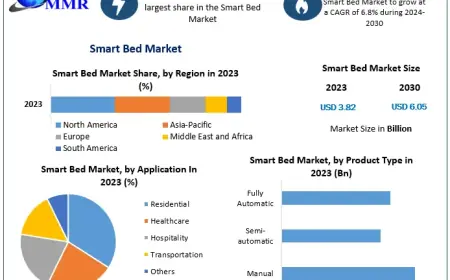Oncological Screening in Riyadh for Different Age Groups
Oncological screening is a systematic approach to detecting cancer early before symptoms manifest. The primary goal of oncological screening is to identify cancer at an initial stage, where treatment is more likely to be effective and the chances of survival are significantly higher. Various types of screenings are tailored to detect specific cancers, such as breast, cervical, colorectal, and prostate cancer.
Oncological screening is crucial for early cancer detection, allowing for timely intervention and treatment. In Riyadh, as in many other places, the approach to oncological screening varies depending on age, as different age groups have distinct risks and requirements. This blog will explore how oncological screening in Riyadh(الكشف عن الأورام بالرياض) is tailored to different age groups, providing valuable insights into the process and importance of screening at various life stages.
Understanding Oncological Screening
Oncological screening involves tests and procedures used to detect cancer before symptoms appear. Early detection through screening can significantly improve treatment outcomes and survival rates. This proactive approach helps identify cancer in its early stages, when it is often more treatable.
Types of Oncological Screening Tests
Several tests are used for oncological screening depending on the type of cancer being targeted:
- Mammography: For breast cancer detection.
- Colonoscopy: For colorectal cancer screening.
- Pap Smear: For cervical cancer detection.
- Prostate-Specific Antigen (PSA) Test: For prostate cancer screening.
Understanding these tests and their purposes is crucial for informed decision-making about screening.
Oncological Screening for Young Adults
Young adults generally have a lower risk of developing cancer compared to older populations, but certain cancers can still affect this age group. Screening guidelines for young adults are not as extensive but may include:
Recommended Screenings
- Breast Cancer: Women with a family history of breast cancer or genetic predispositions may undergo earlier screening.
- Skin Cancer: Regular skin checks are recommended, especially for those with a history of excessive sun exposure or family history of melanoma.
Importance of Early Screening
For young adults, the focus is on awareness and self-examination. Understanding personal risk factors and undergoing appropriate screenings can help in the early detection of rare cancers or conditions.
Oncological Screening for Middle-Aged Adults
As individuals reach middle age, the risk of cancer increases. Oncological screening in Riyadh for this age group becomes more comprehensive, targeting common cancers that typically arise during these years.
Recommended Screenings
- Colonoscopy: Recommended starting at age 45 for colorectal cancer.
- Mammography: Women should begin annual or biennial screenings for breast cancer around age 40-50.
- Prostate-Specific Antigen (PSA) Test: Men should discuss the benefits and risks of PSA testing with their healthcare provider.
Benefits of Regular Screening
Regular screening helps catch cancers early when they are more treatable. Middle-aged adults are encouraged to follow recommended screening schedules to maximize the chances of early detection and successful treatment.
Oncological Screening for Seniors
Seniors are at a higher risk for various types of cancer, and oncological screening in Riyadh is crucial for this age group. Screening protocols for seniors are often more tailored to individual health conditions and life expectancy.
Recommended Screenings
- Colonoscopy: Continue regular screenings as recommended, with some guidelines extending to age 75-85.
- Breast and Prostate Cancer: Continue screening based on individual health status and life expectancy.
- Lung Cancer: For heavy smokers or those with a history of smoking, annual low-dose CT scans may be recommended.
Tailoring Screening to Individual Needs
For seniors, screenings should be personalized based on overall health, medical history, and personal preferences. Discussing options with healthcare providers ensures that screening strategies align with individual health goals and conditions.
How to Get Started with Oncological Screening
Getting started with oncological screening in Riyadh involves understanding the recommended screenings for your age group and discussing them with your healthcare provider. Here are steps to take:
Schedule Screenings
- Consult with a Healthcare Provider: Discuss your personal risk factors and family history to determine which screenings are appropriate.
- Follow Recommended Guidelines: Adhere to the recommended screening schedules based on your age and risk factors.
Prepare for Screenings
- Understand the Process: Learn about the tests you will undergo and how to prepare for them.
- Address Concerns: If you have concerns or questions about the screening process, consult with your healthcare provider for clarification.
Conclusion
Oncological screening in Riyadh is essential for detecting cancer early and improving treatment outcomes. By understanding the recommended screenings for different age groups, individuals can take proactive steps to monitor their health and address potential issues before they become more serious. Regular screenings, tailored to age and individual risk factors, play a crucial role in maintaining health and ensuring early detection of cancer.
What's Your Reaction?
 Like
0
Like
0
 Dislike
0
Dislike
0
 Love
0
Love
0
 Funny
0
Funny
0
 Angry
0
Angry
0
 Sad
0
Sad
0
 Wow
0
Wow
0
















































